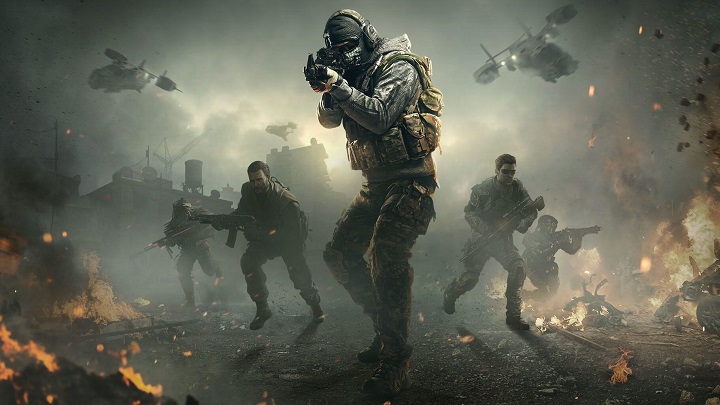CMA: If Activision Sold Call of Duty, Merger With Microsoft Would go Easier
Britain's consumer protection authority does not support Microsoft's purchase of Activision Blizzard. At least not with the Call of Duty series in its catalog.

Purchase of Activision by Microsoft - until recently considered a foregone conclusion by some people - has a growing number of opponents in Europe and the US. The situation is no different in the UK, because although the deal had its supporters, the local Consumer Protection Authority (CMA) concluded that finalizing the acquisition of Activision would harm competition in the console market and in the cloud gaming sector.
The agency has published the results of an investigation, which was conducted for many months, slightly earlier than planned. Previously there was talk that the report would not be made available until March 1, but this is now the date by which Microsoft and other related parties have time to respond to the CMA report.

Like in many other discussions on the most expensive purchase in the history of the game market, a lot of attention has been paid to the Call of Duty series. Not only that, the CMA points to the possibility of making future installments of the series Xbox-exclusive titles as potentially damaging to the console market. Hardly surprising, given that in the CMA's questionnaire 24% of those surveyed said they would give up playing on PlayStation if CoD disappeared from Sony's consoles.
The agency believes that games like the CoD series and World of Warcraft could prove crucial to the growth of the cloud gaming segment. Especially since Microsoft is in a strong starting position here anyway, and combined with its PC dominance and sizable console market share, this has raised considerable concerns for the CMA.
Nevertheless, agency is not sinking the deal entirely. Yes, blocking the purchase is under consideration, but beyond that the CMA points to two other solutions. The first would be an agreement between the parties (i.e., Microsoft and Sony, and probably also Nintendo and Valve), as proposed it by the Redmond giant.
The second way would be to posit a portion of the shares, which in a separate document specified as separating from Activision "the part related to Call of Duty" (and, in one option, World of Warcraft). In other words, the company would sell the rights to the brand before the acquisition by Microsoft.
We point out that, according to the agency, the former action would not be sufficient in itself. The CMA states that circumstances favorable to this option "are not present in this case," because the rapidly evolving game market (especially the cloud gaming segment) makes the agency consider such a solution risky. Thus, any licensing agreement would have to go hand in hand with structural changes at Activision Blizzard.
The agency also remains open to other ideas and opinions from the parties involved. Though not likely to be of the kind that articulated by Bobby Kotick; Activision Blizzard's CEO was far from praising the attitude of British officials..
More for You:
- Ubisoft in Crisis; Publisher Ridiculed
- Google and Nvidia Also Fear Microsoft's Merger With Activision
0

Author: Jacob Blazewicz
Graduated with a master's degree in Polish Studies from the University of Warsaw with a thesis dedicated to this very subject. Started his adventure with gamepressure.com in 2015, writing in the Newsroom and later also in the film and technology sections (also contributed to the Encyclopedia). Interested in video games (and not only video games) for years. He began with platform games and, to this day, remains a big fan of them (including Metroidvania). Also shows interest in card games (including paper), fighting games, soulslikes, and basically everything about games as such. Marvels at pixelated characters from games dating back to the time of the Game Boy (if not older).
Latest News
- End of remote work and 60 hours a week. Demo of Naughty Dog's new game was born amid a crunch atmosphere
- She's the new Lara Croft, but she still lives in fear. Trauma after Perfect Dark changed the actress' approach to the industry
- „A lot has become lost in translation.” Swen Vincke suggests that the scandal surrounding Divinity is a big misunderstanding
- Stuck in development limbo for years, ARK 2 is now planned for 2028
- Few people know about it, but it's an RPG mixing Dark Souls and NieR that has received excellent reviews on Steam, and its first DLC will be released soon


